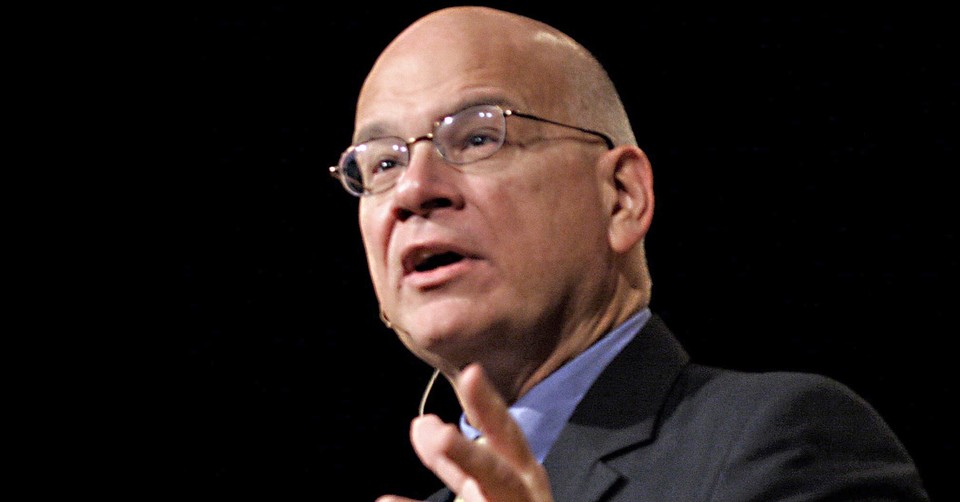Lessons I Learned from Tim Keller

A giant in the Christian faith went home to be with the Lord on Friday. Dr. Timothy Keller, the longtime pastor of Redeemer Church in New York City, suffered from pancreatic cancer since 2020. He breathed his last breath alone in the room with his wife, Kathy, who had just kissed him on the forehead. Since his death, tributes have appeared in almost every major publication, including two pieces in The Atlantic and three in The New York Times.
Like many who mourned his passing, I never met Dr. Keller in person. Also, like many others, he served as a mentor from afar. I could talk for days about the ministry insights I learned from him, but those are not the most important. Through his sermons, books, articles, and interviews, I gleaned an approach to following Jesus and engaging the people around me with the Gospel.
While this list could be much longer, these are the three most important lessons about following Jesus from Dr. Tim Keller.
Cultivate the heart of an evangelist.
Dr. Keller is best known for his evangelistic preaching in Manhattan. When he moved to New York City in 1989, the city was already ahead of most of the country in its embrace of secularism. Many New Yorkers not only didn’t believe the Gospel, but they thought religion was a negative force in the world.
Many convinced skeptics became Christians through Keller’s preaching and teaching. In his sermons, he addressed skeptics’ doubts and showed why the Christian faith answered those doubts. He helped them understand how Jesus fulfilled all of their deepest longings and desires. He patiently answered questions from skeptical people and did so without belittling their concerns.
American Christianity could learn from Keller’s desire to share the Gospel with unbelievers. He did not adopt a culture war approach of opposing culture with political means. Instead, he offered the Gospel to unbelievers and did so in a way that made them want to listen. His passion for seeing people come to Jesus challenges us to throw off our combative approach to the culture and calls us to seek to be persuasive instead.
Understand what motivates your behavior.
When addressing Christians, Keller did not move from preaching good news to unmercifully hammering our failures. He helped Christians understand how the Gospel moved us away from our sins. When preaching about adultery, he avoided browbeating believers over their sins or merely offering advice on avoiding sexual sin. He aimed at the heart to help Christians understand why they wanted to commit adultery and gave them the tools to change the motivational structure of their hearts.
Keller was fond of speaking about the “sin underneath the sin.” He believed all sin had root causes that we could trace back to deeper sins in the heart. In his book Counterfeit Gods, Keller showed that idolatry was at the heart of human sin. He identified three main idols–money, sex, and power–that lead to many other sins.
This helps us understand how to change our behavior and how to disciple other people through their sins. The man who develops an addiction to pornography doesn’t just need his internet cut off. He must repent of his idolization of sexual pleasure. Seeing human behavior like this enables us to deal with sin in the heart rather than merely changing outward behavior.
Model kindness and humility in all your interactions.
When Tim Keller moved to New York City, he would schedule question-and-answer times after his sermons. During these times, he would allow people to honestly voice their objections to Christianity in general and his sermons in particular. Through this, he did not get defensive but instead used it as an opportunity to grow as a preacher and an evangelist.
A number of stories about Keller’s obvious humility have come out in recent days. One person on Twitter told the story of writing an article that was critical of something Dr. Keller had taught. Keller responded by emailing the person, clarifying what he meant, and then asked how he could be clearer in his writing in the future. Not many public figures would not respond to criticism in this fashion.
We all need mentors who show us how to follow Jesus. The best mentors are those who are closest to us. Distant mentors can be a blessing too. Tim Keller was that distant mentor for me. He will be missed, but I am grateful that God gave him to us for the time he did.
Scott Slayton writes at “One Degree to Another.” https://scottslayton.substack.com.
The views expressed in this commentary do not necessarily reflect those of Christian Headlines.
Photo courtesy: Wikimedia Commons/Frank Licorice Flickr/Creative Commons
Scott Slayton writes at “One Degree to Another.”
Originally published May 24, 2023.








